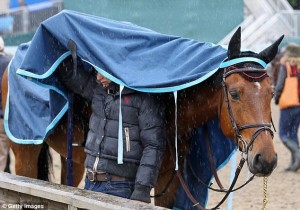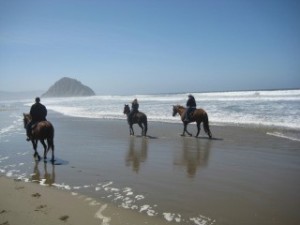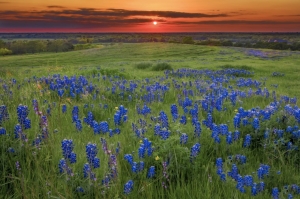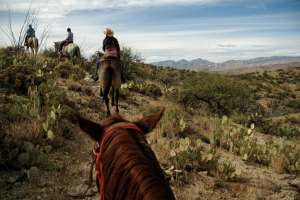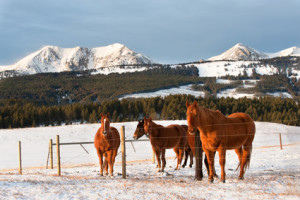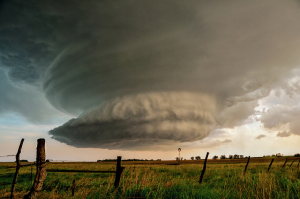Things You Need to Know Before Moving West of the Mississippi
In a country as beautiful as the U.S., we have plenty of fantastic places to live. Deciding to move is full of aspirations, adventures, and unknowns. Yet, moving becomes difficult when you have to bring along your horses, tack, clothing, dogs, and everything else. So before packing your bags and loading up your horses, check out these pros and cons for each region west of the Mississippi.
Pacific Northwest.
Hopefully, you and your horse enjoy the sound of rain hitting a tin roof because you are going to hear it very often.
Pros: High levels of rainfall produce high quality hay, which your horse will love. And you both will appreciate the mild summers and winters. For examples, in Washington State, summer days rarely rise above 79⁰F while winter days rarely drop below 46⁰F. The Pacific Northwest is also infamous for its beautiful landscapes, including forests and mountains. Make sure to check out those riding trails too.
Cons: If you decide to move to the Pacific Northwest, the image above will soon become you and your horse. So be prepared for rain…and lots of it. Buy a raincoat, an umbrella, rain boots, and an extra raincoat
California.
A state that has it all.
Pros: People move to California for a reason. Californian’s have the best of all worlds; beaches, mountains, and forests. Plus the winter weather is practically non-existent!
Cons: California has been in a drought crisis for the last couple years. Be prepared to fork up some cash to pay your water bill, especially if you are bringing multiple horses. Don’t forget about potential natural disasters too. Due to the water issues, California regularly experiences mudslides, wildfires, and earthquakes. And the prices are high, especially for real estate.
The Lone Star State
Plenty of space for all.
Pros: Texas is affordable. In the horse world, the word “affordable” is rare so Texas offers you the opportunity to own your dream horse property without breaking the bank. The state has an abundance of horse properties along with low taxes. Besides that, the Lone Star State is known for their laid-back horse culture and captivating rodeos.
Cons: The state is huge so know precisely where you are going before you leave. Pack your atlas, your phone with navigation, your friend from Texas, and any other device that could help. Getting lost in Texas could mean aimlessly wondering around for days! Once you have developed your bearings, you’ll also have to worry about drought and feral hogs.
The South West (+ Colorado)
Remember to listen for those rattlers.
Pros: When debating if you want to move to Colorado, New Mexico, or Arizona, consider that these states have the most unique biomes in the nation. You can easily find deserts and mountains within each state. For the most part, the weather is typically nice too. For example in Colorado, humidity is very low, which you and your horse will love.
Cons: Be ready for some intense sunshine. To prepare, you should buy plenty of sunscreen and expect to spend your summer days in the shade. With the desert climate, also comes high water costs and little rain. There are rattlesnakes too!
Northern Mountain States
Beautiful, beautiful, beautiful.
Pros: Want to build an equestrian home in the mountains? Then you need to choose between Wyoming, Idaho, and Montana. These states offer low taxes and have plenty of available land.
Cons: The winters are intense and long, with plenty of snow and wind. Yet if you enjoy the winter weather, there are very few other cons.
The Midwest
Watch for the tornadoes.
Pros: Your horses will love the pastures in the Midwest! Due to low population densities in Kansas, Nebraska, and Wisconsin, lush pastures are plentiful. Typically land is flat and relatively inexpensive. If you want to become a farmer, this is the best place to start too!
Cons: Located in Tornado Alley, you will need to be prepared for some serious natural disasters. Take the proper precautions and always be prepared. The Midwest has snowy winters with adequate sunshine, as compared to the grey, dark winters in the Northeast.
Written By Anna Hellman
-
Articles
- March 2023
- February 2023
- December 2022
- November 2022
- October 2022
- September 2022
- August 2022
- July 2022
- June 2022
- May 2022
- April 2022
- March 2022
- February 2022
- January 2022
- December 2021
- November 2021
- October 2021
- September 2021
- August 2021
- July 2021
- May 2021
- April 2021
- March 2021
- February 2021
- January 2021
- December 2020
- November 2020
- October 2020
- September 2020
- August 2020
- July 2020
- June 2020
- May 2020
- April 2020
- March 2020
- February 2020
- January 2020
- December 2019
- November 2019
- October 2019
- September 2019
- August 2019
- July 2019
- June 2019
- May 2019
- April 2019
- March 2019
- February 2019
- January 2019
- December 2018
- November 2018
- October 2018
- September 2018
- August 2018
- July 2018
- June 2018
- May 2018
- April 2018
- March 2018
- February 2018
- January 2018
- November 2017
- October 2017
- September 2017
- August 2017
- July 2017
- June 2017
- May 2017
- April 2017
- March 2017
- February 2017
- January 2017
- December 2016
- October 2016
- September 2016
- August 2016
- July 2016
- June 2016
- May 2016
- April 2016
- March 2016
- February 2016
- January 2016
- December 2015
- November 2015
- October 2015
- August 2015
- June 2015
- May 2015
- March 2015
- November 2014
- March 2014
- October 2013
- September 2013
- August 2013
- January 2013
- December 2012
- November 2012
- October 2012
- September 2012
- January 2012
- October 2011
- September 2011
- August 2011
- July 2011
- June 2011
- February 2011
-
Calendar
January 2025 M T W T F S S 1 2 3 4 5 6 7 8 9 10 11 12 13 14 15 16 17 18 19 20 21 22 23 24 25 26 27 28 29 30 31 -
Meta

